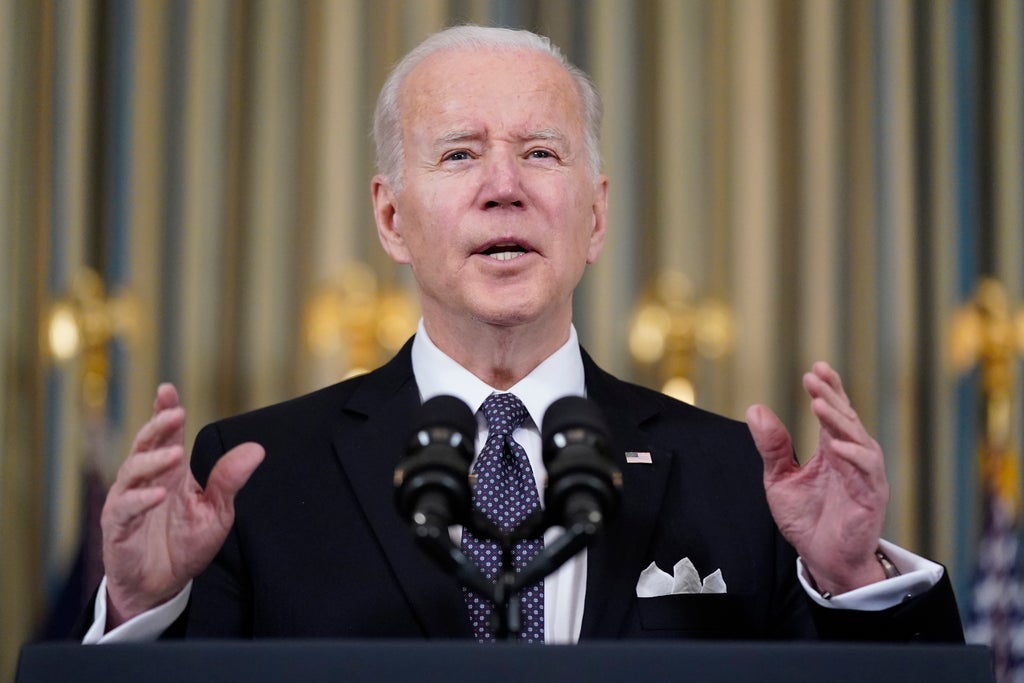
US President Joe Biden’s “Billionaire Minimum Income Tax” in the fiscal year 2023’s budget proposal could create bills of $215bn (£164bn) among the country’s top ten billionaires.
The proposal to impose higher taxes on the wealthy was part of the Biden administration’s budget blueprint released on Monday that calls for lower federal deficits, more money for police and greater funding for education, public health and housing.
The proposal “eliminates the inefficient sheltering of income for decades or generations”, the White House said.
At a press conference, Mr Biden said one-hundredth of one per cent of Americans would be subjected to the tax. “The billionaire minimum tax is fair, and it raises $360bn that can be used to lower costs for families and cut the deficit,” he said.
The proposal needs congressional approval to be passed.
According to a chart shared on Twitter by economist Gabriel Zucman, the proposed tax could see Tesla CEO and billionaire Elon Musk facing a tax bill of $50bn, while Amazon chief Jeff Bezos could face a $35bn bill.
“The billionaire (well, technically centi-millionaire) minimum tax in Biden’s budget is a landmark proposal,” wrote Mr Zucman in his post.
“It would ensure billionaires pay at least 20% of their income — including unrealised gains — in tax.”
The White House said that that the tax proposal would affect roughly 700 billionaires, estimating that these individuals increased their wealth in 2021 by $1 trillion, paying roughly eight per cent of their income and unrealised gains in taxes.
The proposed tax has been panned by billionaires who have called it unconstitutional.
Grocery chain Gristedes Foods CEO John Catsimatidis said that the move to tax the ultra rich is “stupid”.
“I think it’s stupid to punish the people that create the jobs and make the money,” he said. “I create jobs. I don’t make most of my money in hedge funds. I don’t make most of my money in the stock market. I’m different.”
Billionaire hedge fund manager Leon Cooperman said that the “tax does not make any sense”.
“It’s dead on arrival, it’s not constitutional, and it doesn’t make any sense,” he told The Daily Beast. “Why don’t they eliminate the f***ing loopholes in the tax code?”
Under the current system, the ultra wealthy often utilise loopholes or charitable deductions to write down their tax obligations once they are due.
Many billionaires can also avoid paying meaningful taxes for years by holding on to liquid assets. They are also able to borrow large amounts of money using shares as collateral, which prevents them from incurring taxation.
Last June, a report by ProPublica showed that the wealthiest in the US can legally pay income taxes that are a fraction of what middle income citizens pay on their income.
The report showed that Mr Musk paid a 3.27 per cent true tax rate, or $455m, for his wealth growth of $13.9bn over the five-year period between 2014 and 2018.
While his taxable income during that five-year period was $1.52bn, Mr Musk didn’t pay anything in federal income taxes in 2018, the report added.







